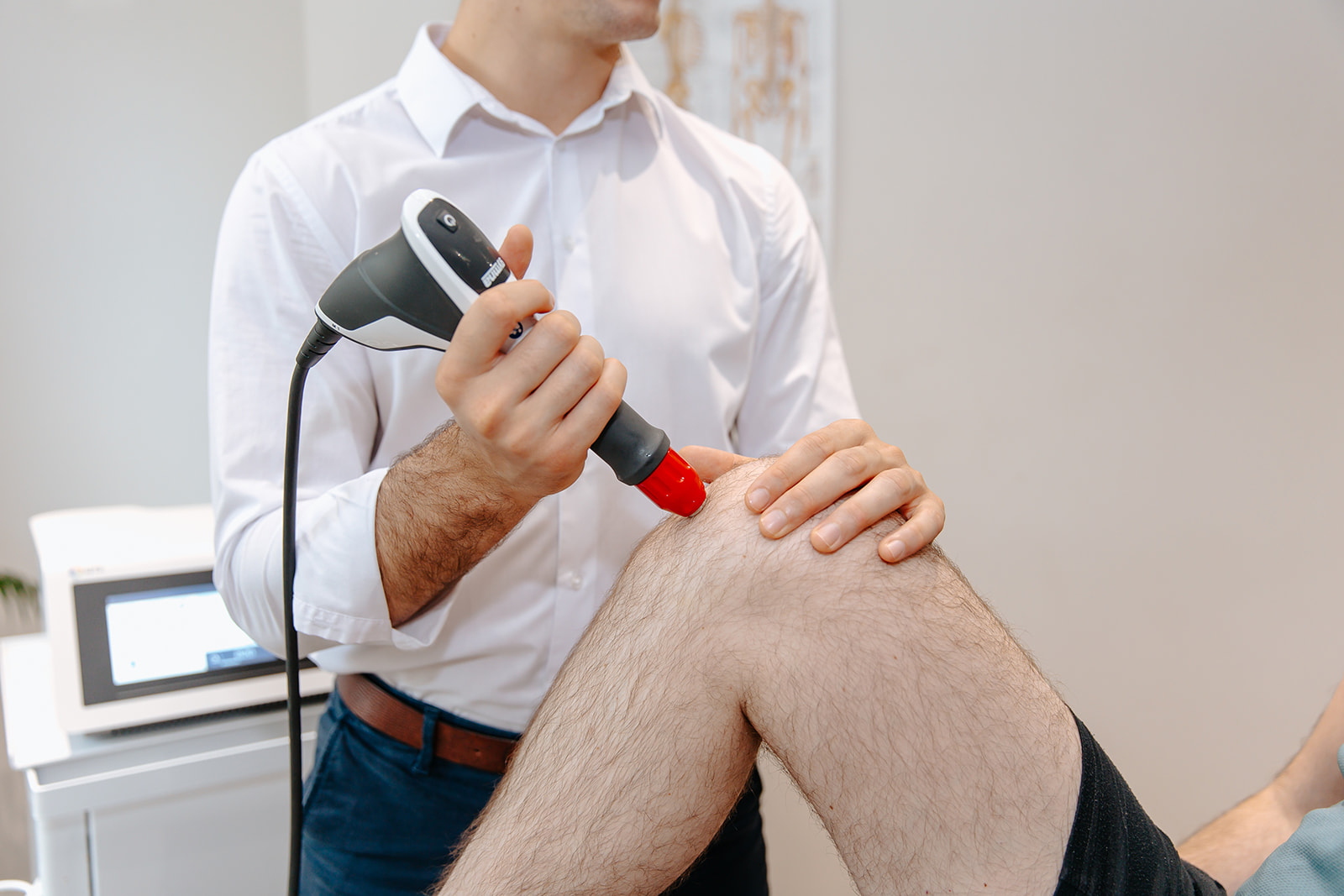Steph Hatt
February 07, 2022
March 22, 2019

Knee pain is not solely isolated to sporting injuries but affects people of all activity levels and ages. The knee is, in a simplistic view, a hinge joint, however, there are a huge number of components that go into making this joint work effectively every day, and with every step.
Pain can be at different points in or around the knee and potentially radiate down into the shin or up into the thigh. The symptoms may range from a mild hindrance of one’s activities, through to the severe limitation of normal daily life.
Knee pain can either be directly related to the integrity of the joint and supporting structures or be a result of problems elsewhere that place abnormal pressure on the knee joint. Common knee injuries include:
Ligamentous damage or rupture – There are four main ligaments in the knee which work to limit excessive movement of the joint. Two that sit within the knee joint limiting forward and backwards movement, and two that sit either side of the knee limiting sideways movement. At times, these ligaments can tear or completely rupture if the knee joint is over stressed in certain directions.
Torn or worn meniscus – The meniscus is a wedge-shaped structure made of cartilage located within the knee, which act as shock absorbers. Damage to the meniscus can occur from an acute injury – for example if the knee is twisted when the foot is planted on the ground, or with long-term over-use.
Patellar tendinopathy – This injury occurs as a result of damage to the strong connective tissue which attaches the quadriceps (thigh) muscle to the shin bone. Excessive jumping or landing strains the patella tendon which over time can cause Patellar tendinopathy.
Chondromalacia patellae – The cartilage under the kneecap is a natural shock absorber. Deterioration or breakdown of this cartilage, often as a result of imbalances at the hip or foot can cause Chondromalacia patellae
Arthritis – Most commonly with osteoarthritis or rheumatoid arthritis which can cause swelling, stiffness and knee pain as you flex and extend your knee.
Iliotibial band friction syndrome – The iliotibial band (ITB) is a tight band of fibrous tissue that runs down the outside of the thigh, from the hip to just below the knee joint. ITB friction syndrome is caused by the ITB rubbing over structures on the side of the knee, often a result of imbalances at the hip or foot.
Apophysitis – Generally found in adolescents, particularly those who are very active and/or have recently had a growth spurt, apophysitis is an inflammation of the bone where strong tendons attach. The most common types of apophysitis at the knee are Osgood Schlatters disease – where the patella tendon attaches to the tibia bone, and Sinding-Larsen-Johansson disease – where the patella tendon attaches to the bottom of the patella.
Physiotherapy can be extremely beneficial. Our qualified and experienced Physiotherapists will provide you with a diagnosis and create an individualised treatment programme so that you can make a full recovery as soon as possible. They will provide you with all the advice necessary, and even if you are in training they will advise you on any modifications to keep up your routine as much as possible during your rehabilitation. If an onward referral to a doctor or consultant (both private and NHS) is required, this will also be organised.
We also run Rehabilitation classes where you are led through bespoke exercises suited to your needs and recovery.
When control of the limb is an issue, this can be addressed by Pilates. We provide classes and one-to-one sessions to aid with this.
If the cause of your knee pain is related to imbalances in your feet, you will be referred to one of our excellent Biomechanical Podiatrists. They can assess and treat you as necessary, which may include casting and fitting orthotics to address any imbalances.
If your condition requires muscular relaxation to aid recovery, Massage Therapy is an excellent treatment option.